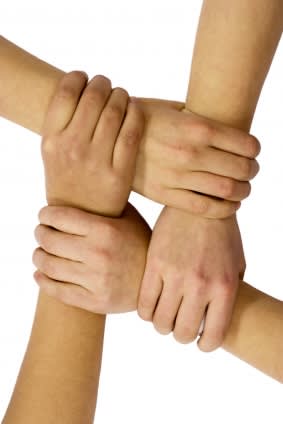The greatest problem facing the Jewish People today is not anti-Semitism, nor is it the threat of Israel’s enemies; rather, it is the tragedy of massive assimilation and intermarriage. The statistics are gruesome: nearly one-third of all Jews maintain no connection to any Jewish institution, retain no affiliation with any Jewish organization, and make no effort to identify with any Jewish community. Even more frightening, one in three Jewish college students will no longer admit to their identity when asked their religion, only 8% of American Jewry will describe themselves as Torah observant, and more than half of all Jews marry non-Jews.
And yet, this is not an altogether new phenomenon. Some 2,500 years ago, we can recall a similar historical experience. During the 5th century B.C.E., the story of Purim takes place in the Persian Empire at a time when the Jewish people were slowly assimilating into the surrounding culture and forgetting the God of their fathers. When we, the Jewish People, begin to reject God’s Torah, God’s hidden supervision of our destiny unfolds and influences us to return despite the clear and obvious threat of anti-Semitism.
The plot line is both familiar and predictable; the ruling power, in this instance King Achashverosh, decrees that the Jews may be killed. But upon hearing the news, Queen Esther orders, “Go, gather together all the Jews, and fast for me.” And the entire Jewish population responds, not just the Orthodox or the religious, but all the Jews fast, pray and repent when it becomes obvious Esther is willing to sacrifice her own life to save her people. This teaches us that every Jew is responsible one for the other. Unity, brotherhood, achdus and ahavas yisroel are the additional lessons of Purim.
As a concrete action, and in order to internalize this lesson, there is a mitzvah on Purim to give shalach manos to other Jews, not necessarily to our fellow religious friends, but to other Jews in general. This is meant to be an all-inclusive gesture and wouldn’t it be wonderful if we extended our shalach manos offerings to non-observant relatives, neighbors, and co-workers? Perhaps this simple act of reaching out would provide the spark of inspiration necessary to strengthen and reconnect others. We have a precious opportunity for change; we can demonstrate the great moral teachings and values of this holiday, if only we bothered to extend ourselves to those beyond our own circle and included them in the process by explaining the reason for giving food gifts and charity to the needy. There is an injunction to invite those who are hungry to share in our bounty and feast at our table which can easily be expanded to include those who are spiritually hungry. Ought we not to include them, as well, in our Purim seudah?
The Megillah tells us, “keemu v’kiblu”; that all the Jews in Persia re-accepted the torah just as the Jews did at Mt. Sinai. The paradigm, the great foundation and goal of Judaism is redemption, geulah. Some day, all the world will be redeemed; the purpose of doing mitzvos is not simply to accrue individual merit for the world-to-come, but to bring the holiness of Hashem , the glory of Hashem, into this world, so that His name becomes sanctified by all of humanity.
Each one of us is obligated to do whatever he or she can to help Jews return, and Purim is the perfect opportunity for change. V’nehafoch Hu: From sorrow to gladness, from mourning to festivity, from assimilation to re-embracing our Jewish identity, and from non-affiliation to re-connection. A simple shalach manos basket, an invitation to a holiday meal, helping others to feel included, inspiring others to return to Torah, reconnecting Jews to the Jewish community, it may be easier that you think.
The statistics are compelling, and as we’ve seen time and again, cultural annihilation doesn’t necessarily require an external enemy. Purim provides the perfect opportunity for us to look beyond the labels of religious categorization and partner with God. His hidden miracles of the past are a hint: unity of the Jewish people is essential if we want to sustain the miraculous propagation of our future generations.
The words of this author reflect his/her own opinions and do not necessarily represent the official position of the Orthodox Union.
